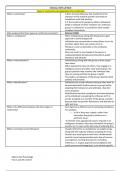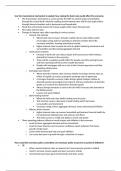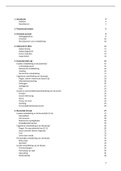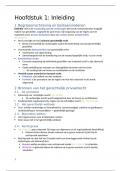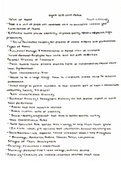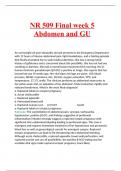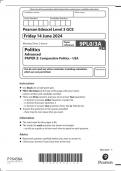Summary
Summary AQA Psychology Social Influence Revision Notes
- Module
- Social Influence
- Institution
- AQA
This document has chapter 1 of the psychology text book for AS level (social influence) summarised. It’s in question and answer form and every possible thing is covered to ensure maximum efficiency when revising
[Show more]
